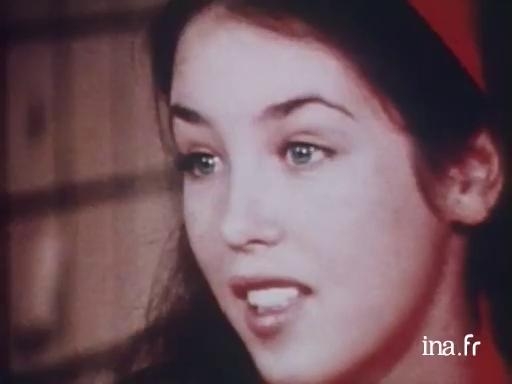Isabelle Adjani about her passion for theatre

Information
Interview with the young Isabelle Adjani, resident at the Comédie Française, while pursuing her studies at college. She speaks about her passion for theatre, about love, her failure at the conservatory and her actress training.
- Europe > France > Ile-de-France > Paris
Context
The first big cinema roles of Isabelle Adjani, that she got in the middle of the 70s (La Gifle by Claude Pinoteau, 1974, L'Histoire d'Adèle H. by François Truffaut, 1975) have since had a tendency of eclipsing her theatre debut.
If it was the screen that she played for the first time (at 14 years old in le Petit Bougnat by Bernard Toublanc-Michel, 1970), her discovery came in the theatre. While the regulars of the Comédie-Française often have to pass by the obligatory stage of the Conservatory, Adjani failed her entrance but joined it later at 17 years old, in 1972. Her performance in Ondine by Jean Giraudoux showed her off, and she shone in Mademoiselle Julie by Strindberg, L'Avare and especially L'Ecole des femmes by Molière. She left the Comédie-Française in 1974 to devote herself to the seventh at but got back on the stage in the role of La Dame aux camélias by Dumas, fils, directed by Alfredo Arias in 2000, then Marie Stuart in 2006.




